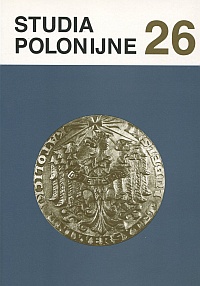The Pastoral Ministry to Poles in Lithuania in the Process of System Transformations
Main Article Content
Abstract
Despite various restrictions, Lithuania and Latvia were specific republics on the territory of The Union of Socialistic Soviet Republics. In these republics there was a net of parishes and quasi-normal church organization. During the soviet rules, despite various difficulties resulting from functioning in the country with dominant atheistic ideology, the religious life was one of the domains in which Poles, despite various limitations, could make sue of certain rights and cultivate their religious and national identity. It was one of the most important mechanisms maintaining national awareness and preventing the process of assimilation.
It should be noted that in the re-born Soviet Republic a considerable improvement in the possibilities of the development of religious life took place. It was evident mainly in the freedom to express and practice one's faith. For pastoral services, although in limited numbers, priests from Poland were allowed to arrive. Owing to this Catholics of Polish nationality could receive a better spiritual care. During this period the number of Polish seminarians increased, which gave prospect for the improvement in access to pastoral ministry in the fatherland language. The democratic freedom was also used by the faithful to undertake numerous initiatives. They created prayer groups, catholic organizations, religious press began to be published and religious issues were presented in other mass-media. This served to spreading religious truths and religious development of society. Despite the change of conditions, the post-war tendency was retained for greater participation in practices and religious self-identification among Poles than Lithuanians. An important achievement was also coming into direct contacts with Catholics in Poland. Owing to this, apart from the visits of priests, it was also possible to receive religious literature, gain theological education in Vilnius and participate in common undertakings, such as symposia, or other initiatives.

